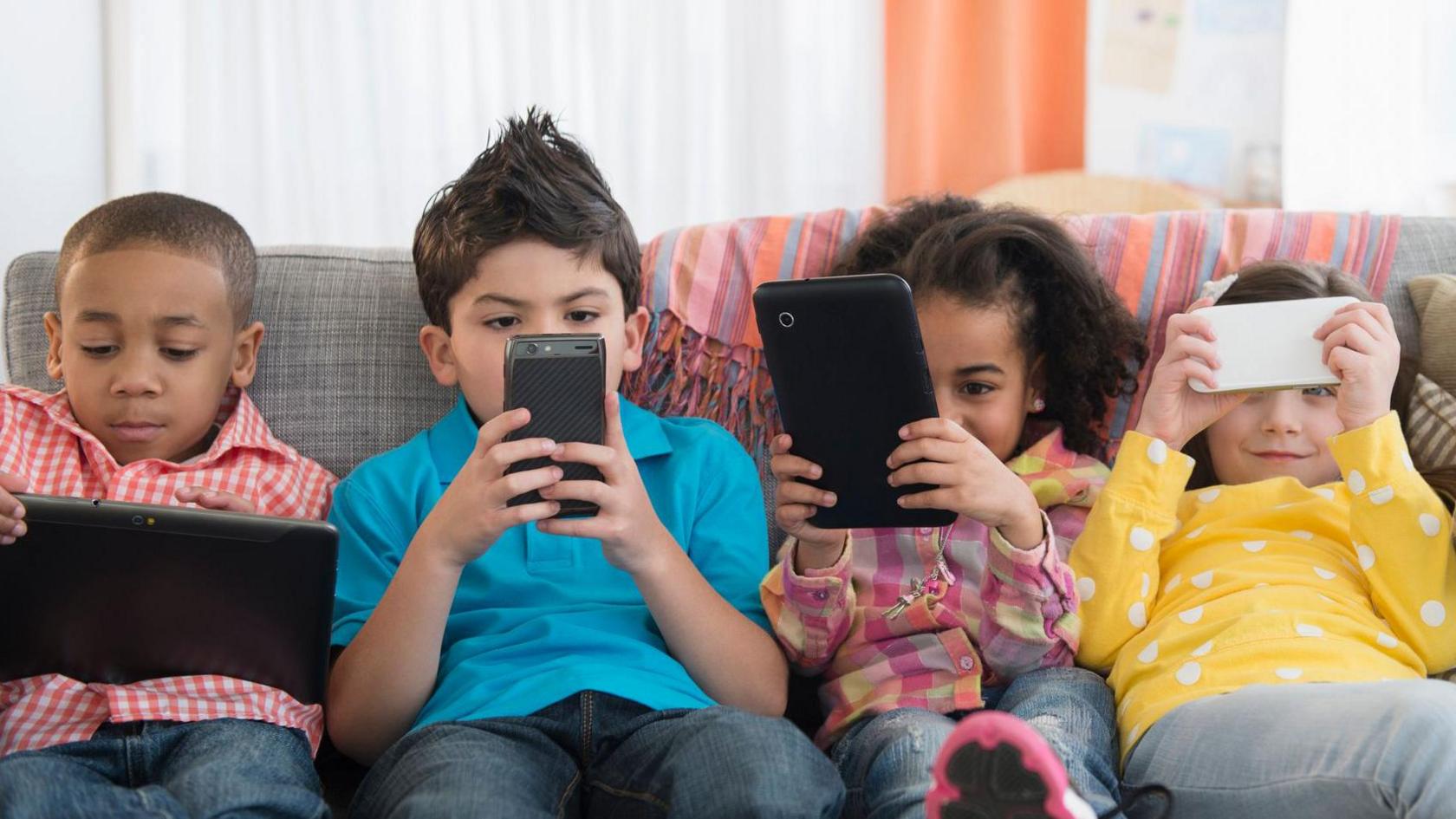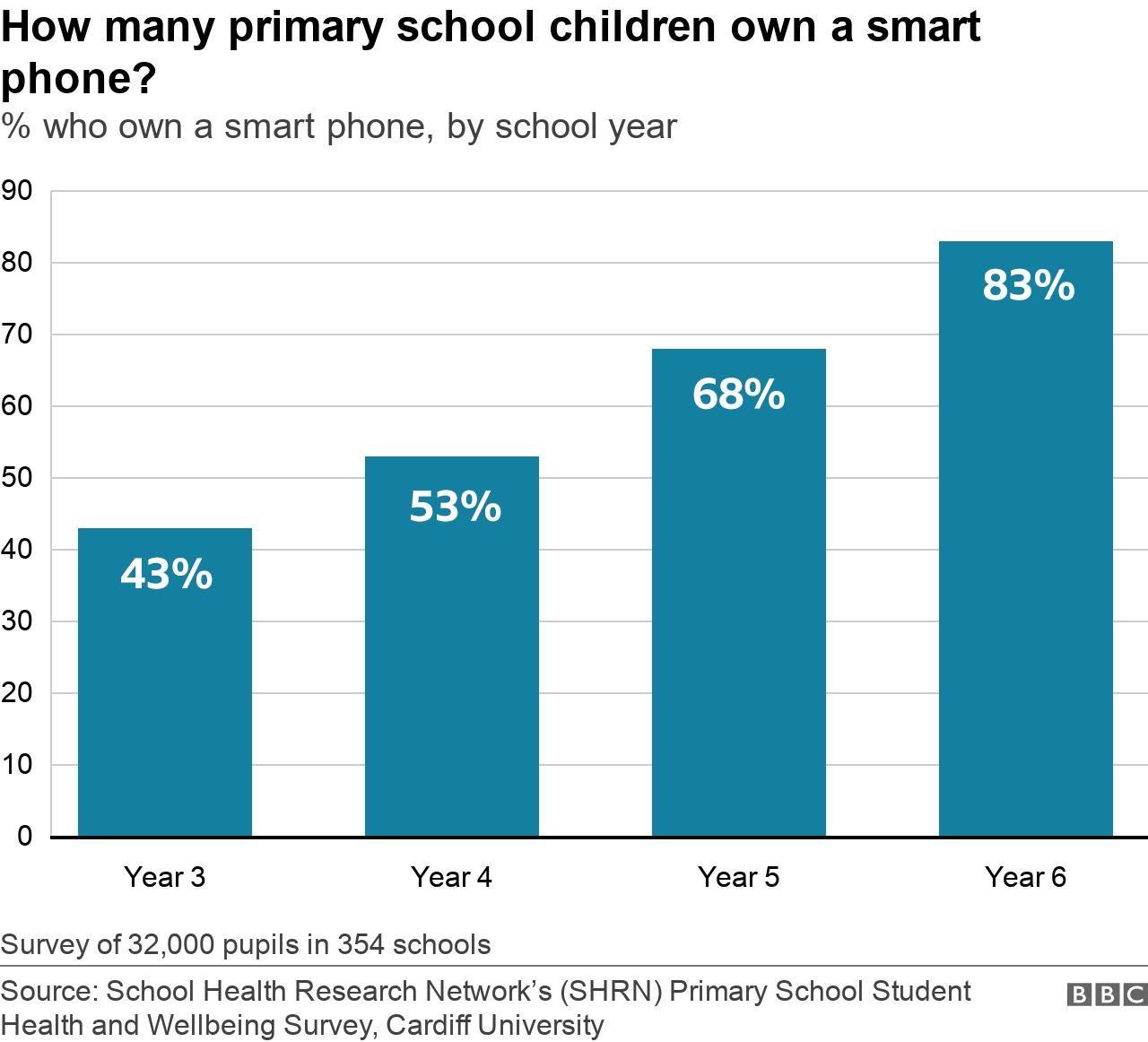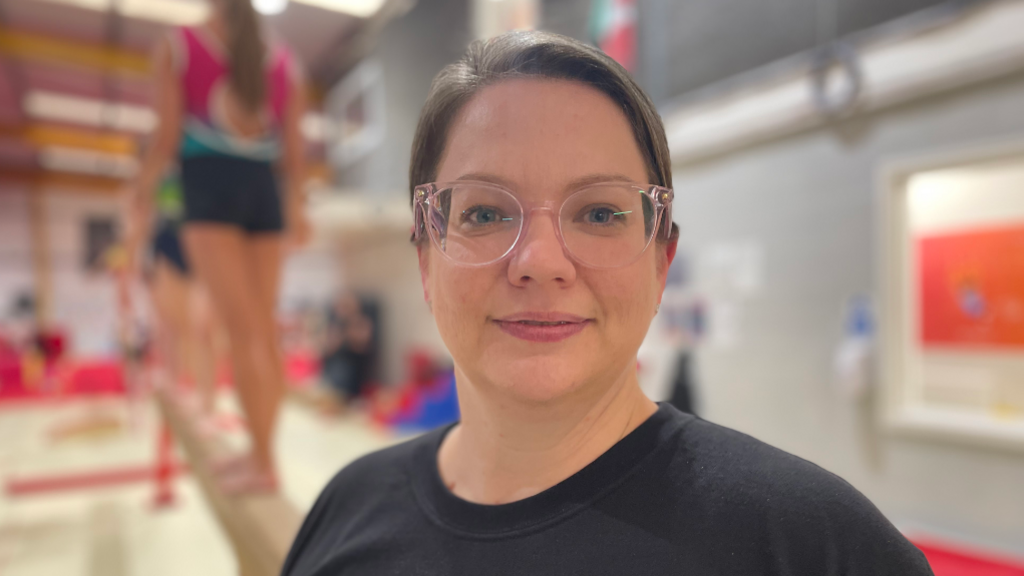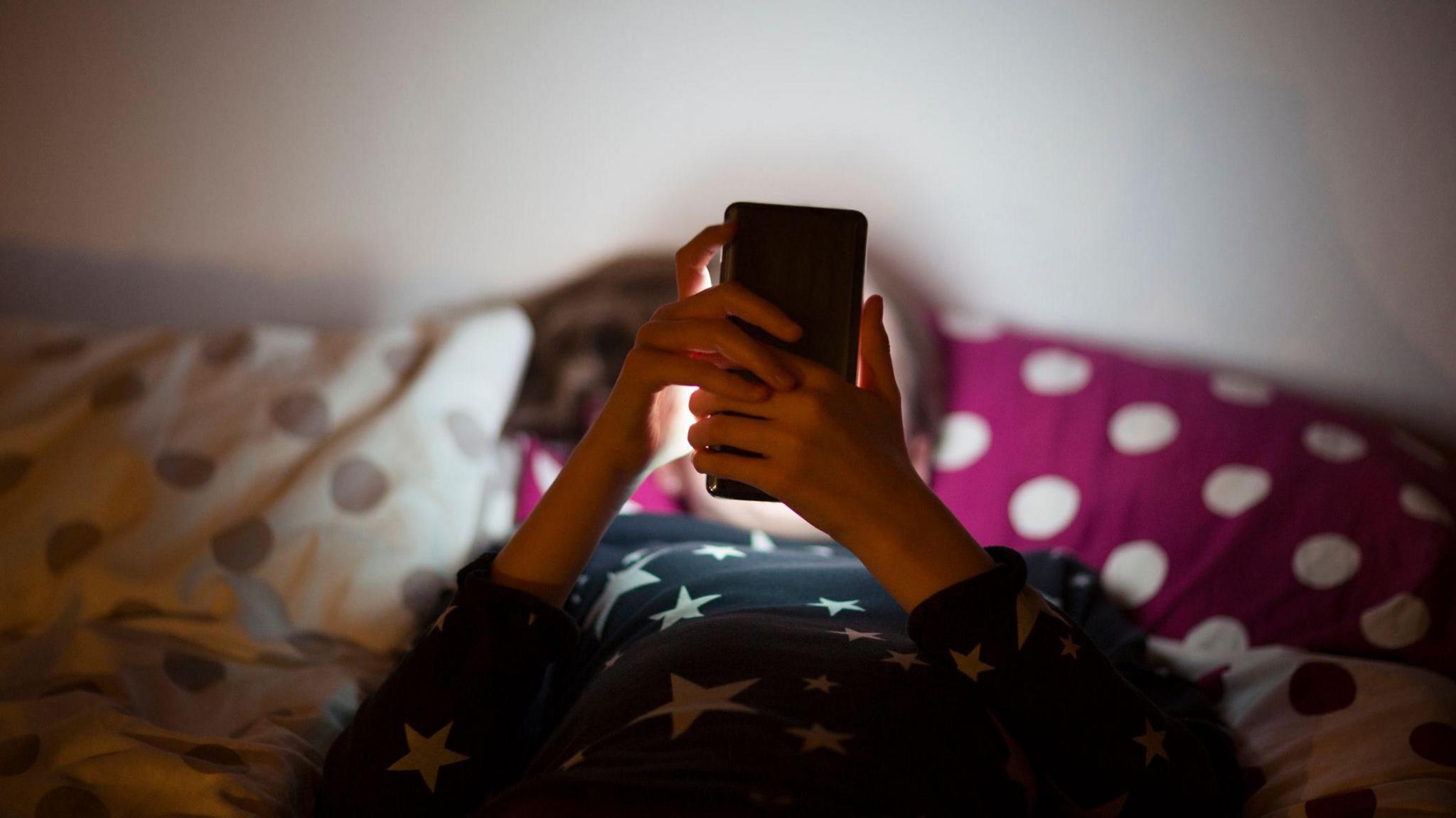Children aged seven using social media regularly

A survey found nearly half of children in year three said they had a smartphone
At a glance
Children as young as seven are using social media regularly, a survey finds
Responses from more than 30,000 children also show that most now own a smartphone
Public health experts say the data is "concerning" and tighter regulation is needed
- Published
Children as young as seven and eight are using social media regularly, according to a major survey in Wales.
Responses from more than 32,000 children, aged seven to 11, suggested almost half used social media sites or apps a few times a week or every day.
Parents said striking a balance between embracing the benefits of smartphones and keeping their children safe online was difficult.
Public health experts said the data was “concerning” and showed the need for more regulation.
Crackdown on harmful social media content agreed
- Published19 September 2023
Teens use screens more and exercise less - survey
- Published6 April 2023
Teens grill TikTok and Meta bosses on app dangers
- Published11 July 2022
Children in 354 primary school across Wales took part in the anonymous survey during the last academic year.
Most said they had a smartphone - including 43% of year threes, who are seven and eight years old.
Two thirds of year six students said they used social media regularly, compared to just under a third of pupils in year three.
The minimum age to use most social media - including Tik Tok, Instagram and Facebook - is 13.

Researchers said they were surprised by the results.
“It is concerning that there are such high numbers of regular social media use and amongst ages from seven right up through to 11," said Dr Kelly Morgan from Cardiff University.
She said the Covid pandemic was one reason why so many of the youngest pupils have smartphones.
“Technology plays a larger part in young people’s lives,” she added.
What do children say?

Isabella, Ruby, Branwen and Caleb, pupils at Ysgol Glan Morfa in Cardiff
Ten year old Caleb recently got a phone – a hand-me-down from his mum.
“I like playing games on it. I like reading comics and stuff. I like watching videos and all that cool stuff," said Caleb.
He uses it to text his parents and go on YouTube.
His classmate, Ruby, also has a smartphone. She said she likes using it “because it's fun, it’s cool and it can save your life”.
“But I am aware you can get cyberbullied or people could say mean stuff about you," she added.
Branwen, 11, said she did not have a phone.
“I've asked my parents and they’re thinking about it," she said.
What do parents say?
Melissa Anderson, who runs a gymnastics academy in Crumlin, Caerphilly county, said social media was a great way to celebrate the children's achievements.
But, as a mum to a 12-year-old boy, she recognised it could be “a minefield”.
“It is really difficult because you’re trying to balance being fair to your child but also keeping your child safe," Melissa said.

Melissa, who runs Valleys Gymnastics Academy, says social media can be a minefield
“He’s had an old phone of mine - the camera doesn’t work.
“He goes on YouTube, he has a child limited account and he’s got no other social media at all."
Sarah Hancock said her 9-year-old daughter, who attends the academy, does not have a phone but does have an Instagram account - controlled by Sarah.
Most of her Instagram friends are gymnastics club members.
“She loves seeing pictures they’ve posted of her and her friends and of course they repost those themselves or they repost each other,” Sarah said.
“I wouldn’t let her have free rein and deal with it herself. I couldn’t do that as a parent."
A teacher’s view

Headteacher Meilir Tomos says cyber-bullying is an issue
“More and more issues are coming into school due to use of social media and these devices,” said Meilir Tomos, headteacher at Ysgol Glan Morfa in Cardiff.
“I think the biggest thing we see is the name calling and the cyber-bullying aspect of it.”
The school holds workshops for pupils and parents and has invited the police to speak to the children about potential dangers.
What can parents do about social media?
Social media apps have recommended age ratings – most are 13+.
There are safety and privacy settings which can usually set a child's account to private, prevent friend requests or hide locations.
The NSPCC says there are benefits to social media, but that it is important to be aware of the negatives and to be vigilant to signs of bullying.
Emily van de Venter, from Public Health Wales, said parents, carers, and teachers should be aware of social media use among younger children and “talk to them about potential harms”.

Parents and carers should talk to children about their social media use, according to Public Health Wales
She said the survey findings highlighted the importance of the UK Online Safety Bill, external, a law aimed at making social media firms more responsible for users' safety.
“While social media companies set age restrictions these are not well enforced or regulated,” she added.
What else did the survey find?
Nearly half of the children said they had recently been bullied at school.
More than a quarter of year six children said they had experienced cyberbullying recently, while 9% admitted they had cyberbullied someone.
One in five children aged seven to 11 said they went to bed at 22:00 or later.
Results about relationships with teachers were largely positive, with 9 out of 10 saying their teachers cared about them.
The Primary School Student Health and Wellbeing Survey was run by Cardiff University in conjunction with Public Health Wales and the Welsh government.